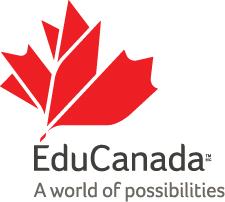Language schools

When you choose to study in one of Canada’s 190+ accredited language programs, you are making an investment in your future. Canada is an officially bilingual country, committed to excellence in English and French. This makes it a natural choice for language education.
Courses or training programs that are 6 months or less (such as language education and short exchange programs) do not require a provincial or territorial attestation letter (PAL/TAL).
Learn more about which international students require a PAL/TAL.
Inquire now!
Fill out this form to get more information.
Why study languages in Canada?
Study English and French in Canada
High-quality education
Canada has invested heavily in second language education, both in English and in French. All accredited language programs are members of Languages Canada - the national association of language programs. This ensures every school meets high standards and operates with integrity.
When you come to Canada for language studies, you can expect:
- A focused approach
- High-quality teaching that guarantees results
- An immersive experience
- Learning adapted to your needs
- To learn English or French, so you can study or live in Canada
Language school options and opportunities
International students have many options when it comes to learning languages in Canada. You can study English or French while working in Canada or take language courses that help prepare you to enter a Canadian university or college program. Many language schools also offer technical language training to improve your vocabulary and communication skills in your specific career. You may also want to study English or French to gain a competitive advantage in your home country.
When searching for the right language school for you or your child, look for language schools accredited by Languages Canada. This accreditation means the schools follow internationally recognized quality assurance standards. Languages Canada has a directory of more than 225 language schools across Canada.
The Languages Canada accreditation is based on the:
- Student services
- Teaching staff
- Program of study (curriculum)
- Marketing, promotion and administration
- Student admissions
The types of programs that language schools offer include:
- General English or French
- Academic English or French
- Business English or French
- Technical English or French (medical, legal, engineering, etc.)
- Internships and work experience
- Seasonal activities and camp programs
- English or French test preparation (common tests include CAEL, IELTS, TOEFL, TEF Canada, TCF or Cambridge English)
- Teacher training programs (common programs include CELTA, TESL, TESOL, CEFLE or Cambridge English)
Improve your language skills to study and work in Canada
Language skills are essential to enter a post-secondary program in Canada.
Many language schools prepare international students to attend college or university in Canada. You must be able to speak English or French to study at a Canadian university or college.
- English-language colleges and universities may require you to write a Test of English as a Foreign Language (TOEFL), International English Language Testing System (IELTS), Cambridge English Assessment or the Canadian Academic English Language Assessment (CAEL).
- French-language colleges and universities assess students individually. To learn what a certain university or college requires, check with the Office of the Registrar at the school you wish to attend.
If you wish to apply for a post-graduation work permit (PGWP) you must provide proof of your English or French language skills.
How to enroll in a language school
Each language school has its own enrollment process. All language schools will need you to take a test to assess your skill level in English or French. Based on that test, the school will suggest a course of study. Most language schools offer courses based on weeks of study, not a semester or monthly course.
- Students 18 and over: You must apply for a study permit from the Government of Canada to attend a language school in Canada, unless your program is six months or less.
- Minor children (under 18): If your child attends a language school in Canada, you may need to apply for a special study permit.
You may also contact the language school you plan to attend. They will be able to answer your questions about fees and study permits.
Cost of language school in Canada
Language schools often provide courses based on a certain number of weeks, rather than a semester approach to study. The cost of tuition at Canadian language schools is established by each school.
Find a language program from Languages Canada.
Accommodations
Whether you are studying in a city, in a rural community or somewhere in between, there are housing options If you don't have a friend or relative to stay with while studying in Canada, you may choose to live:
- With a homestay family
- In your school's residence accommodations
- In a rental house or apartment
Related
- Beyond borders: Learn a language in Canada
- Beyond borders: How studying languages can change your life
- Study in French in Canada
Features

Live and work
Discover everything you need to know about living and working in Canada as an international student.

Common pathways to college and university
Canada's education system is flexible. Discover all the paths you can take to achieve your goals.

Top reasons to study in Canada
Discover the many reasons why international students choose to study in Canada.
- Date modified: